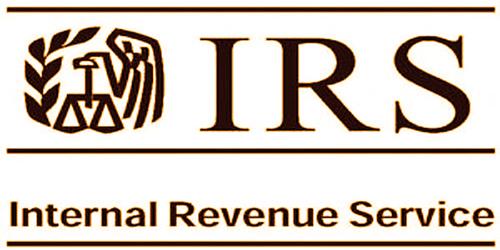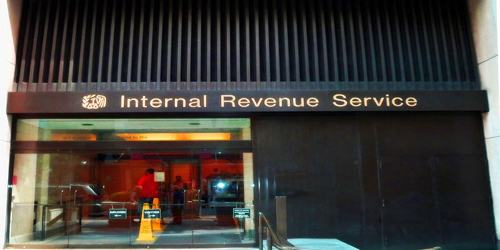The Internal Revenue Service (IRS) is responsible for assessing, reviewing, and receiving tax revenue in the federal government of the United States (U.S.) Founded in 1862 by President Abraham Lincoln, the agency functions under the jurisdiction of the United States Treasury Department, and its primary function is to collect individual income taxes and taxes on jobs. The IRS is to blame for collecting taxes and administering the inner Revenue Code, the most body of federal statutory jurisprudence of the United States.
IRS responsibilities include providing tax aid to taxpayers and investigating and addressing cases of fraudulent or erroneous tax returns. It also manages corporate, donation, excise, and property taxes including mutual and dividend funds. The IRS has also regulated numerous services for insurance and enforces portions of the Affordable Care Act. Individuals refer to the IRS colloquially as the “tax man.”

Internal Revenue Service (IRS) Logo
In July 1862, during the American Civil War, President Abraham Lincoln and Congress passed the Revenue Act of 1862, creating the office of Commissioner of tax revenue and enacting a short-lived tax to pay war expenses. The 1862 Revenue Act was passed as both an emergency and temporary war-time levy. It copied a relatively new British income tax system, instead of taxation on trade and property. Each year the IRS audits a select portion of income tax returns as part of its compliance mandate. For the 2017 tax year, the agency audited approximately 1.2 million revenue enhancement returns or 0.6% of all returns filed. This number is down to 0.7 percent of tax returns on individual income and 1.1 percent of corporate tax returns (excluding corporations with S). Approximately 71 percent of IRS audits were done through the mail, while 29 percent happened in the field.
In 1919 the IRS was tasked with enforcing laws concerning the prohibition of the sale and manufacture of alcohol; in 1930 this was transferred to the jurisdiction of the Department of Justice. The IRS resumed collecting taxes on beverage alcohol after its repeal in 1933. The office’s activities in alcohol, tobacco, and firearms were segregated into the 1972 Bureau of Alcohol, Tobacco, Firearms, and Explosives. The number of audits decreased steadily each year after climbing to a peak in 2010. From 2010 to 2016, the amount of funding set aside for tax enforcement has declined by 20 percent, indicating that even fewer audits should occur.
Reasons for an IRS audit vary, but some factors may increase the chances of an examination. Chief among them: higher income. In 2017, the general audit rate was one in 167 tax returns, except for someone who made quite $1 million income; the chances were 1 in 23 returns. From the 1950s through the 1970s, the IRS began using microfilm technology to keep records and organize them. The IRS handled sixty million tax returns each year by the end of the Second World War, using a combination of mechanical desk calculators, accounting machines, and paper and pencil forms.

New York City (U.S.) field office for the IRS
The IRS began the use of the public Internet for electronic filing in 1995. Self-paced online tax services have flourished since the introduction of e-filing, increasing the work of tax accountants, who were sometimes replaced. People making somewhere in the range of $200,000 and $1 million out of one duty year who don’t record Schedule C (the structure for the independently employed) have a .8% possibility of being evaluated, versus 1.6% fundamentally twofold for the individuals who do. The Bureau of Internal Revenue started using the name “Internal Revenue Service” on at least one tax form as early as the year 1918. In Treasury Decision 6038 the name change to “Internal Revenue Service” was formalized in 1953.
Other warnings for a review incorporate neglecting to announce the perfect measure of salary, guaranteeing a higher-than-typical measure of derivations (particularly business-related ones), making lopsidedly huge altruistic gifts contrasted with pay, and asserting rental land misfortunes. The IRS also runs three computer centers across the country (in Michigan, Detroit; Martinsburg, West Virginia; and Memphis, Tennessee). No single factor determines who faces an IRS audit annually, or who does not.
Information Sources:
















